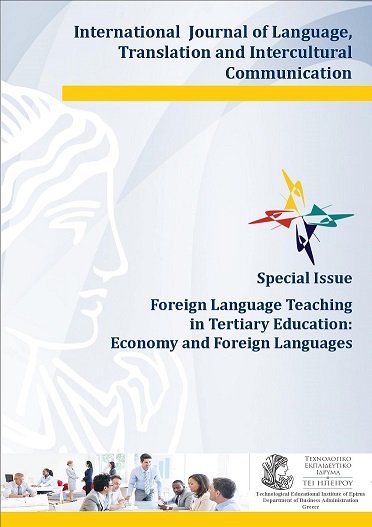Developing a foreign language policy in Greek higher education (HE): striving between Scylla and Charybdis.

Abstract
The present study analyses foreign language (FL) policy in Greek higher education (HE) taking into consideration the multiple interrelated factors that development and implementation of a successful FL policy hinges on. A brief overview is presented of European initiatives that have contributed significantly to the promotion of language learning, multilingualism and the harmonization of university language policies. This was considered necessary so as to lay the context for the presentation of the practices documented in the Greek HE arena, with specific examples provided from Greek institutions. To address the aims of this research project, the state legislation relevant to FL issues in HE is examined and discussed, as it unavoidably influences and mirrors observed trends and priorities in language education. Finally, extensive data is analysed from five Greek HE institutions and their FL instructors, with regard to language practices implemented, programmes of study, instructors’ professional status, etc. The results of this analysis show that great effort and extensive co-operation among all stakeholders is still required in devising a holistic FL policy in Greek HE, to which end this paper also offers some useful recommendations.
Article Details
- How to Cite
-
TSELIGKA, T. (2016). Developing a foreign language policy in Greek higher education (HE): striving between Scylla and Charybdis. International Journal of Language, Translation and Intercultural Communication, 4(1), 54–67. https://doi.org/10.12681/ijltic.10352
- Section
- Articles

This work is licensed under a Creative Commons Attribution-NonCommercial-ShareAlike 4.0 International License.
Copyright Notice
Authors who publish with this journal agree to the following terms:
- Authors retain copyright and grant the journal right of first publication with the work simultaneously licensed under a Creative Commons Attribution License that allows others to share the work with an acknowledgement of the work's authorship and initial publication in this journal.
- Authors are able to enter into separate, additional contractual arrangements for the non-exclusive distribution of the journal's published version of the work (e.g., post it to an institutional repository or publish it in a book), with an acknowledgement of its initial publication in this journal.
- Authors are permitted and encouraged to post their work online (e.g., in institutional repositories or on their website) prior to and during the submission process, as it can lead to productive exchanges, as well as earlier and greater citation of published work (See The Effect of Open Access).


